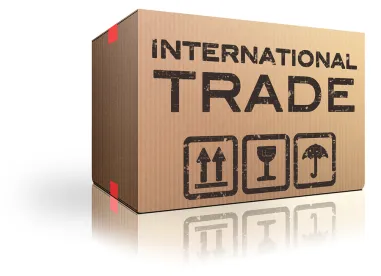In the face of increased tension between China and the United States, might Europe attract significantly more Chinese investment?
Deterioration in the US Investment Environment
Tensions between China and the United States continue to escalate. Chinese and US leaders have, at least temporarily, damaged the Sino-US relationship and, in the process, Chinese investors are finding it increasingly difficult to put their money in US markets.
Challenges facing Chinese investors in the United States are widespread. In addition to the review by the Committee on Foreign Investment in the United States, the Trump administration has claimed that certain Chinese companies that appear benign and consumer driven actually present a national security risk. The US Government has also threatened to ban Tiktok, which specialises in video sharing, or, as an alternative, sell its US business to a US company.
In response to national security concerns from Chinese companies, the US Government launched a programme called Clean Network, which focuses on five areas and includes steps to prevent various Chinese apps and telecommunications companies from accessing sensitive information on American citizens and businesses.
In light of the difficulties surrounding Chinese investors and companies doing business with the United States, Chinese investment could begin to flow more strongly to the European Union.
Upcoming Cornerstones of the European Investment Environment
Leading up to the outbreak of COVID-19, the European investment environment was favourable to Chinese investors, especially when compared with the US environment. Since then, however, although still much better than the US environment, it is not clear whether the EU investment environment will be maintained.
In just one example, it is notable that the United States is not alone in expressing concerns about the prevalence and use of Chinese technology. Chinese telecommunications company, Huawei, has been banned from certain telecommunications infrastructure in Australia, Sweden, the United Kingdom, amongst others, in addition to the United States.
The finding of an MAE in the United States is subject to specific case law.
Foreign Investment Reviews by EU Member States
On 16 June 2020, the German parliament, the Deutscher Bundestag, adopted an amendment of the German Foreign Trade and Payments Act (AWG). The amended AWG seeks to adapt the German legal framework to the requirements of the European Foreign Direct Investment (FDI) Screening Regulation (Regulation (EU) 2019/452 of 19 March 2019) and to further tighten the investigation and control regime relating to foreign investments in German target companies.
A likely side effect to the AWG is a general hesitancy by foreign investors, including those from China, to invest or acquire German companies in strategically important industrial sectors. This trend of tightening foreign investment control is an international one not limited to Germany; other EU Member States also took steps to implement the FDI Regulation.
It is, however, worth noting that providing the tools for any intervention does not mean that the preconditions for their use are fulfilled more frequently, nor that those tools are actually used more often.
European Commission White Paper on Foreign Subsidies
In June this year, the European Commission released a White Paper on ways Member States can level the playing field with foreign entities that depend on subsidies from foreign governments.
It concludes that foreign subsidies can in fact undermine competition and distort the European Union’s internal market. For example, in the case of a foreign company acquiring an EU entity, foreign government subsidies (such as preferential treatments in financing, loan guarantees, and special tax rebates) may enable the acquirer to offer premiums for acquisition, thereby preventing non-subsidised acquirers from accessing key technologies.
The White Paper proposes an introduction of new EU legislation to address the current lack of rules on unregulated foreign subsidies. This would greatly reduce the certainty of transactions and modify closing schedules for foreign transactions.
Potential Investments and Local Operation of High Tech Companies in Europe
Chinese technology companies are increasingly turning their attention to Europe for investment and acquisitions. A recent report by GP Bullhound found that outbound deal volumes by Chinese technology investors into Europe increased 25 per cent in the first quarter of 2020. the report also found that, for the first time since 2018, Chinese investment into the European technology sector caught up with amounts invested in the United States.
Among European deals by Chinese technology firms, Alibaba Group Holding and another Chinese tech giant were the most active. In addition to acquisitions, Chinese high-tech companies, such as Alibaba Cloud and Tiktok, have actively entered the European market by establishing local operation centres.
EU policymakers and dealmakers have begun to express concerns over this increased interest by Chinese investors.
It is unclear whether or not EU policymakers will take a cue from their US counterparts, but if they do continue scrutinising Chinese companies, there may come a point where it could detrimentally impact Chinse inbound investments.
EU-China Comprehensive Agreement on Investment
In 2014, the European Union and China launched negotiations on the Comprehensive Agreement on Investment (CAI). The European Union sought to create new investment opportunities in China for European companies by opening China’s market and eliminating certain discriminatory laws and practices. EU policymakers claimed that the Chinese regulatory environment prevented EU companies from competing in the Chinese market on an equal basis with Chinese companies.
It is noteworthy that, in recent years, the Chinese Government has attempted to open certain parts of the Chinese market and create legal certainty for foreign investors. Despite these recent Chinese efforts to lure foreign investors, there is still considerable daylight between the Chinese and European CAI negotiators.
The market access negotiation not only entails market opening, but also focuses on levelling market access, the treatment of state-owned enterprises, and countering subsidies, making the CAI the first bilateral investment agreement signed by China to include market access.
The current market trend is to specifically exclude pandemics.
Prospects for EU-China Investment in the Post-Pandemic Period
Trade and investment links between the European Union and China are very important for both parties. The European Union and China are strategic markets for each other, trading on average over €1 billion per day. China’s growing domestic market and economic weight represent significant business opportunities for European companies.
During the pandemic, European companies have continued to invest in the Chinese market. In May 2020, Germany’s Volkswagen Group, the largest European car company, announced an investment of €2.1 billion in China to vigorously promote the development of its electric vehicle business. In July 2020, France’s Danone Group announced an investment of €100 million to enhance its business in China, focused on improving local research and development, and innovation capabilities.
According to a recent report by Roland Berger, Chinese companies’ investments in European markets have filled gaps in certain European industrial chains. For example, CATL, a Chinese battery giant, established a battery cell manufacturing plant in Germany to enhance electric vehicle manufacturing in the European Union. Similarly, Chinese tech companies have established research centres throughout Europe to advance innovation throughout European enterprises. For example, one Chinese tech giant, relying on its own cloud computing and artificial intelligence technologies, is providing BMW with an advanced and complete technical solution that runs through the entire research and development process of autonomous driving.
The COVID-19 pandemic has not only exposed the tensions between China and the European Union, it has also shown the mutual dependence of the two nations. It would be in both parties’ best interests to reach a consensus that mutual cooperation outweighs splendid isolation.





 />i
/>i

